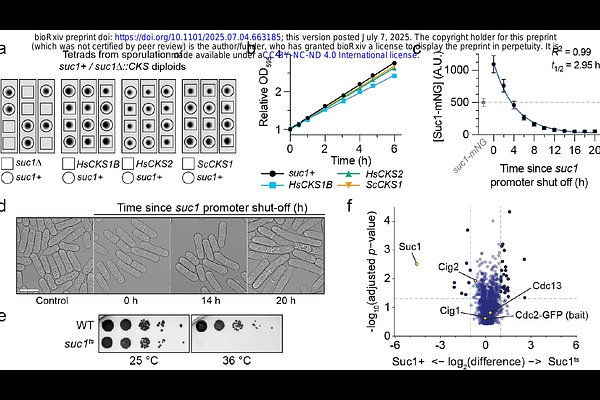Control of CDK activity and the cell cycle by CKS proteins

Control of CDK activity and the cell cycle by CKS proteins
Curran, J. F.; Basu, S.; Auchynnikava, T.; Nurse, P.
AbstractThe eukaryotic cell cycle is orchestrated by the activity of Cyclin-Dependent Kinases (CDKs)1. Although most mechanisms controlling CDK activity are well understood, one class of proteins - the CDK regulatory subunit (CKS) proteins - remain highly enigmatic. There is no generally accepted consistent molecular or functional characterisation of CKS in vivo, despite being essential across eukaryotes and implicated in a range of cell cycle processes and cancer2,3. Here, we provide a unifying framework for CKS function. We show in a single, genetically tractable system, the fission yeast, that CKS regulates the onset and progression of both S-phase and mitosis. We find that CKS modulates the phosphorylation of more than 200 CDK phosphosites in vivo, located on 133 substrate proteins. These are involved in diverse processes across the entire cell cycle, including DNA replication, chromosome condensation, the spindle assembly checkpoint, and the metaphase-anaphase transition. We demonstrate that CKS enhances CDK activity to drive phosphorylation of sites with low affinity for CDK. This acts both on specific substrates, likely by stabilizing CDK-substrate interactions, and through control of overall CDK activity, by regulating its interaction with Wee1 and Cdc25. Our findings establish CKS proteins as major multifaceted regulators of the cell cycle, operating through the global and local control of CDK activity.